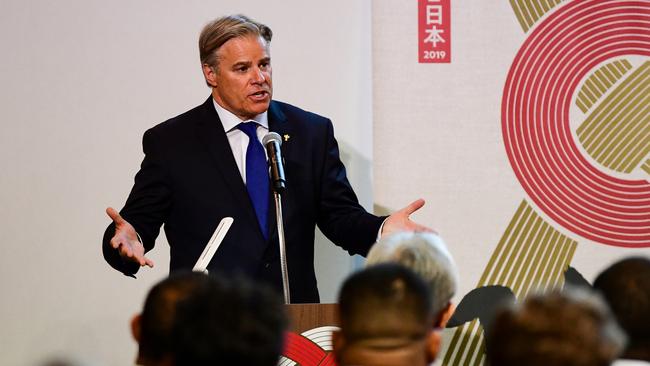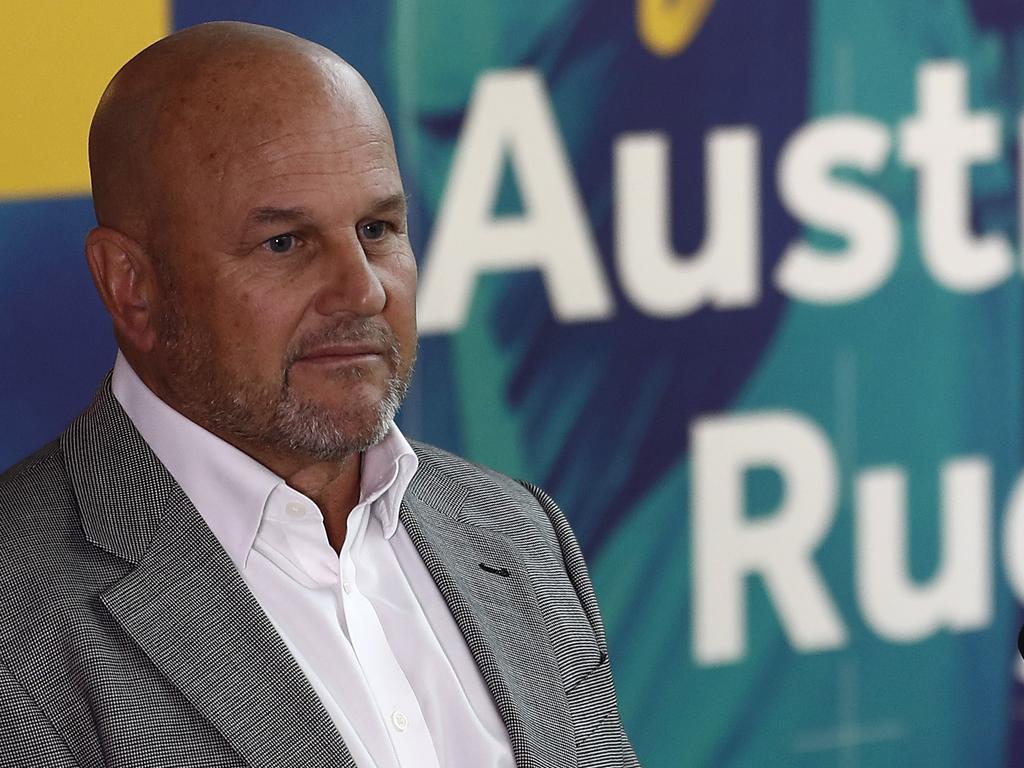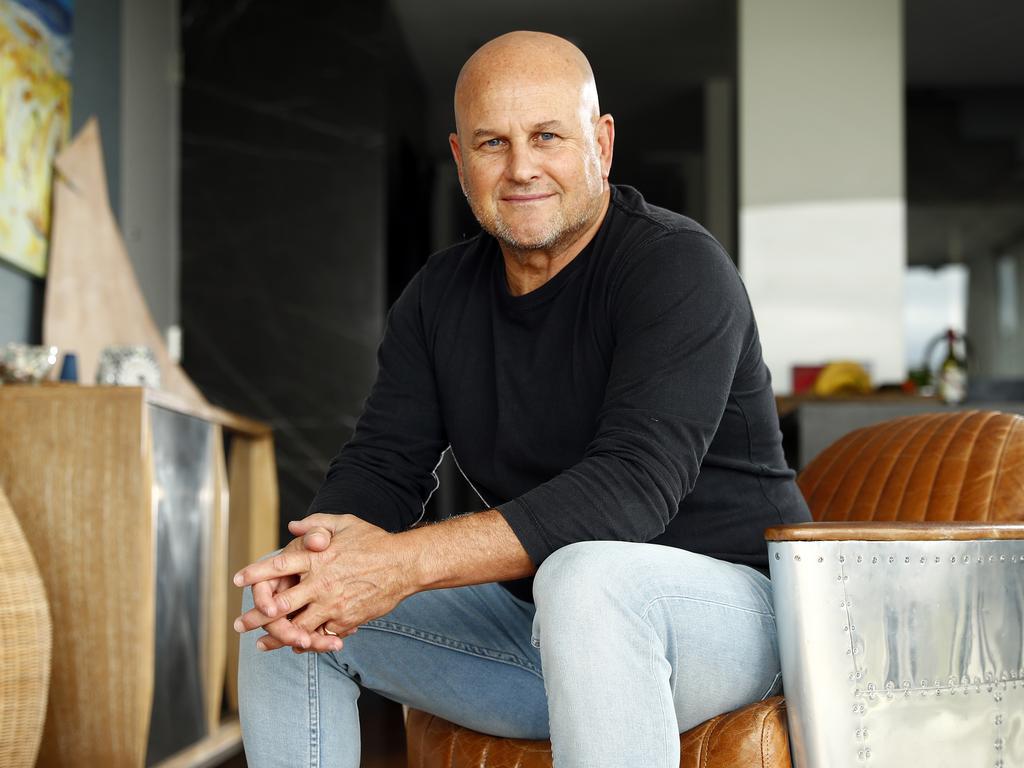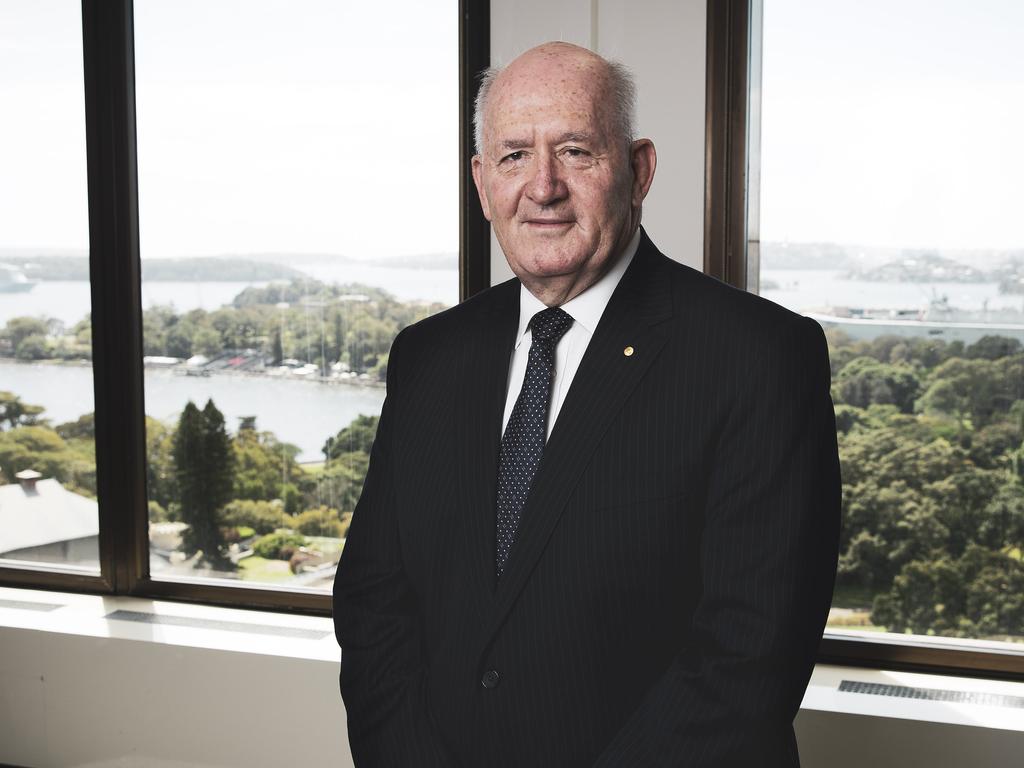Russia remains a Rugby World Cup rival until court bans it
Russia will be permitted to remain as a rival candidate to Australia for the 2027 Rugby World Cup.

Russia will be permitted to remain as a rival candidate to Australia for the 2027 Rugby World Cup until its appeal against the World Anti-Doping Agency’s four-year hosting ban is rejected by the Court of Arbitration for Sport, World Rugby chief executive Brett Gosper said on Thursday.
One of the penalties handed down in December by WADA over Russia’s continued support of doping was the country’s ability to bid for or host – whether during or after the four-year ban – any major sporting event, such as the RWC. But until its appeal is heard by CAS in November, it can continue to parade as a contender for the 2027 World Cup.
“It is being appealed to CAS so it doesn’t eliminate them until the CAS ruling (if it goes against Russia),” Gosper told The Australian on Thursday from Dublin. “So at this point they are able to be a contender. Obviously we have to see how it plays out with CAS.”
Gosper on Thursday announced that for the first time, World Rugby had put together men and women in a single bidding process, one that would cover the next two World Cups for each – 2027 and 2031 for men, and 2025 and 2029 for women.
As a result, no fewer than four RWCs will be announced at the one time, following the World Rugby council meeting in 2022.
“Following on from a record RWC in Japan (last year) and thinking that there will be very strong interest, we’ve remodelled a slightly more condensed, three-phase program for this – the dialogue phase (February 2021), the candidate phase (May 2021) and the evaluation phase (February 2022) – that leads to a decision by council in May 2022,” Gosper said.
“I think the exciting thing is that we are providing some certainty and a strategic pathway over about a decade for the sport which I think, coming out of the COVID phase, will be much welcomed by our unions, our fans and the hosts who will collaborate with to create these World Cups in different geographies.”
Given that World Rugby won’t be calling for formal bids until May, even Australia can’t officially be said to be in the running for 2027.
Try telling that to Rugby Australia. Not only have they set up a RWC bidding advisory committee headed by Sir Rod Eddington and including John Howard, former Governor-General Sir Peter Cosgrove and IOC vice-president John Coates, but last week they went a step further and announced that the eventual full-time job of bid chief executive would be filled by former Wallabies captain and two-times World Cup winner Phil Kearns.
“Australia have announced formally that they are a candidate bid,” Gosper said.
“There have been a couple of others that have mentioned their intention. Really, until we hit the candidate phase in May 2021, that’s really when the gate opens for the official candidates.
“There have been people like Russia and the USA who’ve shown interest and you hear on the grapevine interest for 2031 as opposed to 2027 with our candidate nations.
“I certainly think that Australia seems to be faster out of the blocks and better prepared than other nations at this point.”
Yet, despite the fact that by 2027 the three previous World Cups – in England in 2015, Japan in 2019 and France in 2023 – will all have been held in the northern hemisphere, Gosper stressed there was no obligation for World Rugby members to send the tournament south of the equator.
“Remember this is a voting council that will make this decision and I certainly feel because rugby often operates on a north-south equity, let’s call it, certainly there will be some empathy for ‘potentially it is time for a southern hosting situation’ … but there is no obligation.
“Each bid will be evaluated on its merits of what it can contribute to the global game itself. I don’t think you can rely on a north-south divide.”
It should not be lines of latitude that Australia should be studying, in Gosper’s opinion, but time zones. The economic impact of the 2019 Japan tournament was $7.852 billion.
“Some of that extra wealth that was created in broadcast in Japan and so on, certainly any bid on that time zone is helping sustain some of that wealth creation,” he said.
Gosper declined to act as mediator between Australia and New Zealand over next year’s competition model, with both nations threatening to go it alone rather than stage a trans-Tasman series.
“I think there are some smart people in both those countries and I’m sure they will find the right mix,” Gosper said.







To join the conversation, please log in. Don't have an account? Register
Join the conversation, you are commenting as Logout